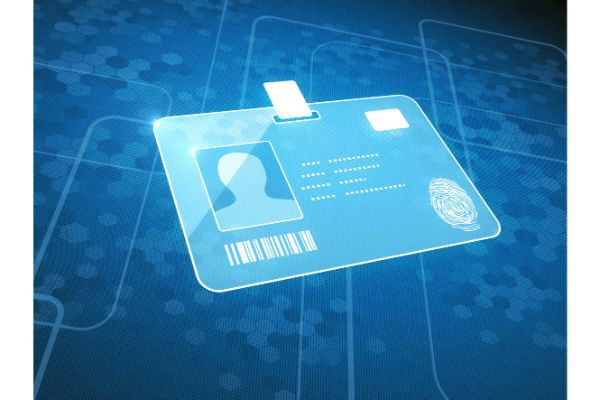|
Virginia state officials introduced legislation that will write new standards for mental health care in county jails. There has been an increased focus on jails in Virginia after the 2015 death of Jamychael Mitchell in the Hampton Roads Regional Jail. Mitchell suffered from severe mental illness and was not transferred to a state hospital as ordered by a judge. The paperwork ordering the transfer had been lost and Mitchell had been held for four months for stealing snacks from a convenience store. A judge signed off on a $3 million settlement between the jail and Mitchell’s family.
Justice Department Report A 2018 report from the U.S. Justice Department found that medical and mental health care in Virginia jails probably violated the Constitution. The Hampton Roads Regional Jail has been the focus of much of the criticism. The jail has become the dumping ground for most of the sickest inmates in Virginia’s coastal region. The Justice Department report notes that the jail failed to provide adequate medical and mental health care and did not have enough medical staff. The report also took issue with the jail’s use of isolation. The report proposed legislative reforms to develop better standards in jails. One reform would be to develop a statutory definition of “mental illness.” Another proposed reform would make it easier to prosecute medical providers who abuse or neglect an incapacitated adult. Prosecutors also recommended annual unannounced inspections of local jails. New Standards The new standards developed in response to the report include the unannounced annual inspections. Jails would also be required to submit quarterly reports which would be published on the Board of Corrections website. The Board of Corrections is required to work with Department of Behavioral Health and Developmental Standards and the Office of the Inspector General to put together comprehensive new standards in writing by November. A work group had already been formed to put together a starting point for standards that would be consistent across the state’s county jails. If you or a loved one has a mental disability and has been arrested or convicted of a crime, you need an experienced criminal defense attorney on your side. Elizabeth Kelley specializes in representing individuals with mental disabilities. To schedule a consultation call (509) 991-7058.
8 Comments
A new smartphone application that works with Google Glass may help boost the social skills of children with autism spectrum disorder (ASD). A small studypublished in the Journal Pediatrics found that over the course of six weeks, children who used the app at home made greater gains in their social abilities than those children who attended therapy alone. While the study is preliminary and the app is not currently commercially available, the results look promising.
Help With Social Skills Many children with autism suffer socially because they are unable to properly recognize and respond to feelings and emotions in others. They typically have particular difficulty recognizing facial expressions. A group of scientists built facial recognition software for Google Glass to help children with autism distinguish between different facial expressions and learn how to interact socially. Google Glass is a brand of smart glasses with an optical head-mounted display that is designed in the shape of glasses. Google Glass displays information like a smartphone in a hands-free way. Wearers of the device can communicate with the internet using voice commands. The new app called “Superpower Glass” helps children decipher what is happening with the people around them. The camera and speaker report information to a smartphone app which is designed to help the children decode what is happening and how to respond. After using Superpower Glass for four 20-minute sessions for six weeks, children scored better on tests of socialization, communication, and behavior. The app relies on artificial intelligence to offer children feedback on social interactions. This helps them learn from experience the appropriate ways to respond in social situations. The app gives the children feedback in real time. When the children look at a face, a green light flashes and an emoji tells the kids what emotion the face is displaying. The study shows promising results but it still remains to be seen whether Superpower Glass is feasible in real-world settings and whether families will actually choose to use the app. If you or a loved one has a mental disability and has been arrested or convicted of a crime, you need an experienced criminal defense attorney on your side. Elizabeth Kelley specializes in representing individuals with mental disabilities. To schedule a consultation call (509) 991-7058. According to a recent studypublished in the Journal Pediatrics, nearly 1 in 7 children between the ages of 6 and 18 suffers from a mental health condition. The study was based on data from the 2016 National Survey of Children’s Health which is a nationwide survey administered to parents. In the survey of the parents of 46.6 million children, 7.7 million had at least one mental health condition. These conditions including things such as depression, anxiety, or attention-deficit/hyperactivity disorder.
Are They Being Treated? Data from the study also showed that about half of the children with mental health conditions go untreated. This is a shockingly high number. Although the percentage of untreated children varied by state, there were several factors that contributed to this number. Some parents and communities attach a stigma to mental health conditions. As a result, families may not feel comfortable accessing mental health resources. In addition, some families do not have insurance or financial resources to seek treatment. Treatment for mental health conditions usually require regular therapy or doctor visits and the costs can add up. In addition, according to datafrom the American Academy of Child and Adolescent Psychiatry, a majority of the country is facing a severe shortage of mental health providers for children and adolescents. This can lead to families waiting on long lists to receive treatment. Symptoms can worsen while children await care. More Access to Treatment In order to get children the treatment they need, many pediatrician’s offices have added a mental health component to their practice. Pediatricians are often the first healthcare providers to recognize the symptoms of a mental health condition in children. If they are able to work closely with mental health providers, this can lead to faster and more effective, integrated treatment for children with mental health conditions. Untreated mental health conditions in children and adolescents can have serious consequences. It can disrupt their ability to function at home, school, and in the community. This puts them at an increased risk of failing in school, having contact with the criminal justice system and even suicide. If you or a loved one has a mental disability and has been arrested or convicted of a crime, you need an experienced criminal defense attorney on your side. Elizabeth Kelley specializes in representing individuals with mental disability. To schedule a consultation call (509) 991-7058. In February of 2019, New York passed a law making special identification cards available to individuals with a diagnosed developmental disability. Known as I/DD IDs, these cards can be requested through the state’s Office for People With Developmental Disabilities (OPWDD). The ID card is completely voluntary and is available to individuals with intellectual and developmental disabilities, including autism. Demand for the ID cards has been high with more than 2,000 people requesting the cards in the first three days of the program.
I/DD IDs The ID cards contain important information on both sides. The front of the card includes a general explanation of the types of behaviors that can be anticipated from someone with a developmental disability when they are approached unexpectedly. The card states “I may have difficulty understanding and following your directions or may be unable to respond.” The card further states “I may become physically agitated if you prompt me verbally or touch me or move too close to me. I am not intentionally refusing to cooperate. I may need your assistance.” The back of the card contains a person's name, address, and date of birth. There is also room for emergency contact information. There is also space where additional information about an individual can be added. This additional information can include tips on how to respond to a particular person. Why ID Cards? The ID cards are designed to make first responders, such as police officers, aware of a person’s communication and behavioral challenges. This information can be important in situations involving public safety. People with developmental disabilities have different ways of communicating and may not always be able to explain this fact to a first responder. Making law enforcement and other first responders aware of someone’s disability can protect the person from ending up in a precarious situation. Too often the behavior of those with developmental disabilities can be misinterpreted and can result in unnecessary arrests, or even shootings based on a misunderstanding. Allowing law enforcement to know up front the situation they are dealing with can help protect everyone involved. If you or a loved one has a mental disability and has been arrested or convicted of a crime, you need an experienced criminal defense attorney on your side. Elizabeth Kelley specializes in representing individuals with mental disability. To schedule a consultation call (509) 991-7058. In 2018, Oregon set a record for the most criminal defendants that are too mentally ill to stand trial. According to Oregon State Hospital admission records, 718 defendants were court ordered to be patients at the facility and treated for their mental illness until they gained the capacity to stand trial. Of these individuals, 286 were only charged with misdemeanors.
A federal court order requires Oregon to admit these mentally ill defendants to the Oregon State Hospital within seven days. But Oregon continues to violate this court order which results in frequent delays in hospital admission. Some of these delays are up to a month in length. According to an investigationby the Oregonian, from January 2018 to February 2019, jail and hospital officials failed to get people out of jail and into treatment within seven days in more than 200 cases. This accounted for 29% of all admissions for mentally ill defendants. Of these defendants, 63 had only been charged with a misdemeanor. Slow Admissions Oregon officials blamed a number of different factors for the slow hospital admissions. Officials state there is a lack of beds available at the facility. They also cite late paperwork filing and delays in transportation arrangements. In two cases they blamed the delay on bad weather. Whatever the reason for the delay, the result is that people are languishing in jail and not receiving the resources they need. Negative Effects When individuals with mental illness are kept in county jails instead of in mental health facilities, they are not receiving the treatment they need. It's an unfortunate reality that county jails in many states end up serving as inadequate mental health care facilities. However, the individuals in Oregon who are not receiving timely treatment are often severely mentally ill and should not be forced to spend extended time in jail. They deserve treatment and not punishment. They face further harm to their mental health by being forced to remain in the county jail for weeks or even months without proper treatment. If you or a loved one has a mental disability and has been arrested or convicted of a crime, you need an experienced criminal defense attorney on your side. Elizabeth Kelley specializes in representing individuals with mental disability. To schedule a consultation call (509) 991-7058. |
Details
Archives
March 2024
Categories |





 RSS Feed
RSS Feed